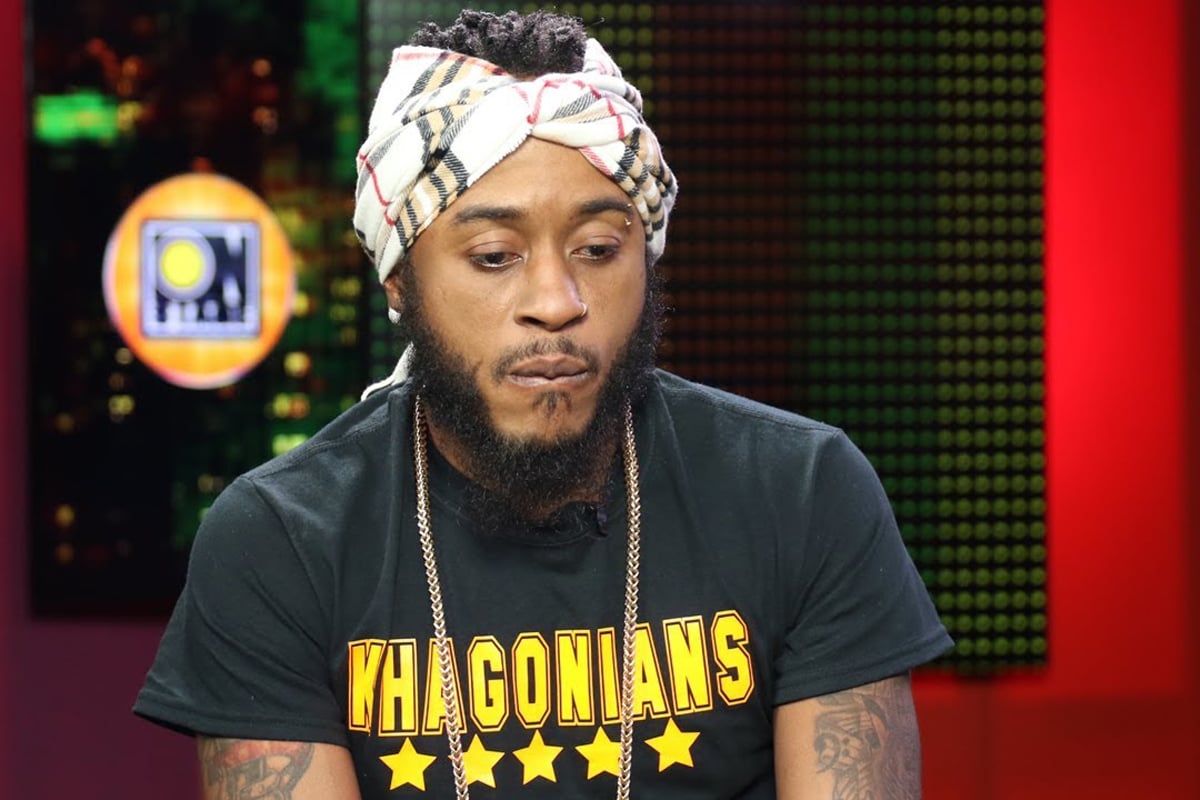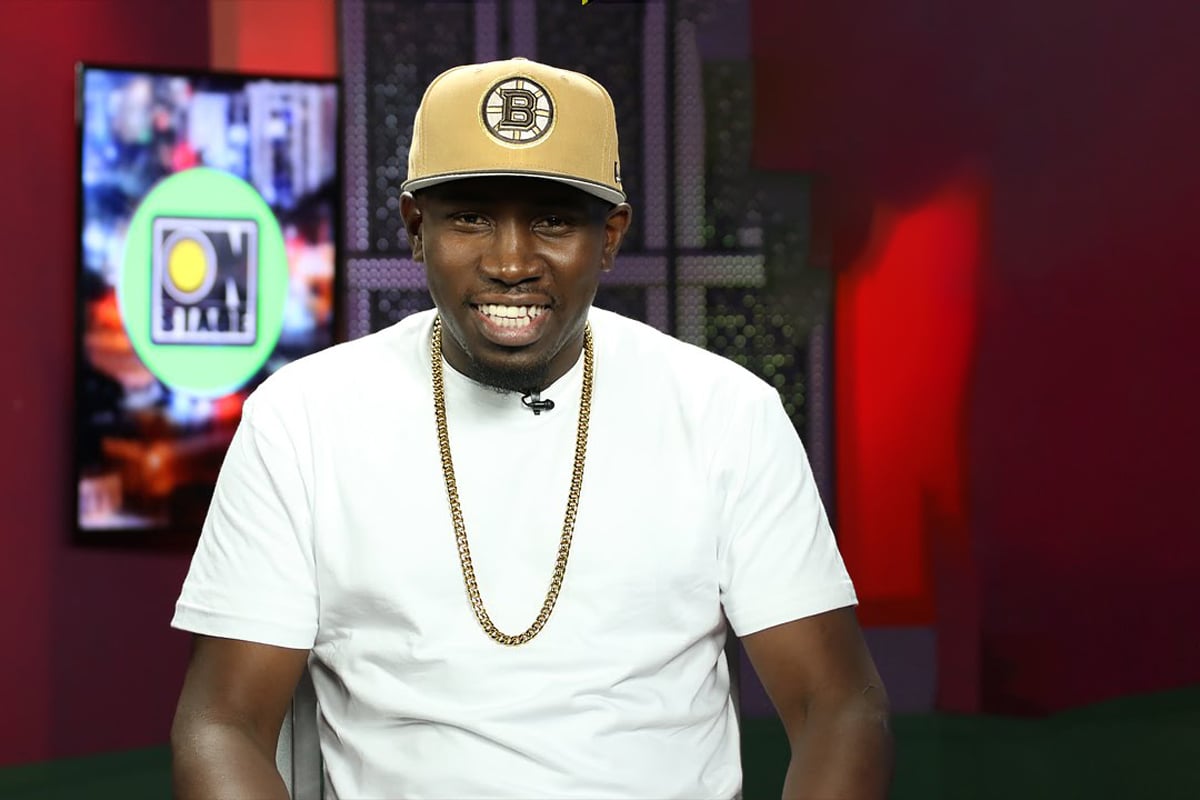No To Sampling: Khago, Wife Francine Say American Rappers Exploiting, Watering Down Dancehall

Declaring that Jamaican Reggae and Dancehall is a global cultural heavyweight towering over American genres, Nah Sell Out artist Khago says he has had to chase away American rappers who have approached him asking for permission to sample his hit song.
A strident Khago said there is no way he will allow anyone access to reproduce his songs unless it is they humbly ask for a collaboration with him, which must include him in everything from recording in the studio to the video shoot.
According to him, reproducing or sampling the work of an artist who is still alive, without including them physically in the recording is the height of arrogance, exploitation, and disrespect, as anyone who does that is relegating the artist and his/her original work, to being a relic of the past.
“Bredda, mi si waan rapper call mi fi sample Naw Sell Out mi fren dem enuh. Mi naw talk (the name), yuh si, jus because me is not dah type a man deh,” Khago stated during a recent episode of The Fix Podcast.
Khago, a straight shooter, did not mince words as he explained his reaction to what he had considered a disrespectful, arrogant and belittling request. “Meck mi tell yuh suppm. How, yuh waan sample my music an mi nuh dead bwoy? Yuh a eediat?” he declared.
“Mi an yuh haffi inna studio an voice it togedda and shoot video togedda. Suck yuhself wid dat. A dead man yuh sample. Guh sample Bob Marley. Guh sample me. Hey bwoy! Yuh waan put mi inna di past bwoy. Yuh a eediat? Sample mi? Guh sample 6IX dem. Sample whofah music?” Khago charged.
“A Reggae music a di biggest music. A jus we a nuh nobaddy inna it. Yuh crazy dawg?” he added.
Khago’s wife and manager, Francine Gayle, who spearheaded his successful million-dollar lawsuit against producer Flava McGregor, also had a lot to say about how Americans were exploiting the music and mistreating many of the artists, sampling their music and making them appear irrelevant.
“We have got a lot of weight as Jamaicans, and at the same time we out here and we taking it for granted. You know how much a dem American rapper sample our music and run away with it and do all different things? And we just sit back and a seh ‘at least our culture is being promoted in another sector’. Really?” she said in apparent consternation.
“We can’t just teck our genre just for granted just like that where anybody can just step in and just run wid it and just gone. We have to change dat. Because even dem ova dere too, dem teck wi fi eediat,” she added.
Khago and Francine’s sentiments hold great validity, as in March 2015, The Fader reported that Dancehall deejay Agent Sasco, who co-wrote and sang on Kanye West’s I’m In It (Track 6 on West’s Yeezus album) and also powerfully wrote and sang two-thirds of Kendrick Lamar’s hit track The Blacker The Berry , was not acknowledged as a featured artist on official releases on either record.
The Fader noted that the omission of Sacso by both men, resulted in an in an “exhaustive and otherwise well-informed article offering biographies of Kanye’s 50-plus Yeezus contributors and collaborators”, Myspace.com overlooked the Banks of the Hope singer entirely, as they erroneously thought “that the Jeffrey Campbell listed as a writer on I’m In It must be the ladies’ shoe designer” by the same name.
The Fader also reported that Yeezus had “a noticeably Jamaican slant”, where Kanye sampled Capleton, Beenie Man, and Popcaan, but that the deejay said he “never communicated directly with Kanye during the process”.
The Fader said that the two did eventually meet the previous December, after being introduced at an event by producer Rodney “Darkchild” Jerkins. However, based on the report, Kanye appeared aloof, after Rodney had said, “Yo, this is Assassin (Sasco), who was on that Yeezus record. I’m not sure if you met.”
“And Kanye was like, ‘Oh yes, nice to meet you.’ We took a picture, and that was that,” Sasco had told the media outlet.
Khago and Francine’s sentiments were also echoed in October 2019 by veteran Dancehall selector Foota Hype, after American Kanye West came to Jamaica to stage his Sunday Service.
Hype had described Kanye’s visit as a well-planned exploitation after the rapper began illegally selling merchandise emblazoned with the Jamaican symbols, including the coat of arms without the expressed permission of the Jamaican government.
At the time Foota Hype, who is producer of Bounty Killer’s Nuh Friend Fish track, said there is a slew of American rappers and other artists who have either sampled or pirated Jamaican music, in order to redeem their faltering careers, remain relevant, and fatten their bank accounts, while watering down the Jamaican artistes.
The Cassava Piece native said that even though these artists have latched onto Jamaican music, because Reggae and Dancehall sells the most globally, at the same time they do not to pay homage to the Jamaicans who created the original works, instead giving the public the impression that they are the originators.
“Di whola dem a exploit Jamaica; from DJ Khaled to Jay Z, to Kanye to Tory Lanez – everybaddy. Everybaddy, a our ting dem use and a sell millions a records…,” Foota had said at the time.
“So oonu haffi realize dis now seh Jamaica is the pivot point of the world when it come to music and culture; we are the Usain Bolts of the world. So fi dem job a fi exploit wi to di fullest and water dung wi ting to di fullest,” he argued.
Foota also pointed out that artistes like The Game and Mims could not even make proper comeback song after collaborating with Reggae singer Junior Reid to strengthen their song sales.
“Game biggest song, nuh him and Junior Reid man. Game nuh flop from dat man. Nobaddy memba nuh Game? Mims have di hottest song wid Junior Reid; from dat wi see no Mims again? Wi nuh see dem back,” he explained.

Foota also cited Kanye’s 2012 hit, Mercy , which featured himself Big Sean, Pusha T and 2 Chainz which had heavily sampled the 1986 Dancehall song Dust a sound Boy by Super Beagle by using its Fuzzy Jones intro in full, as another heavy reliance on Dancehall to prop up Kanye’s career which had fallen into a slump. The song had receive two Grammy nominations for Best Rap Song and Best Rap Performance in 2013.
“Kanye last hit song a Lamborghini Mercy wid di Jamaican sample inna it…
“Yuh tink seh Kanye a eediat. From Kanye duh Lamborghini Mercy, a Kanye last big hit dat enuh. From Kanye teef dah sample and see seh a so Dancehall powerful, di whole a dem a penetrate Jamaica,” Foota added.
